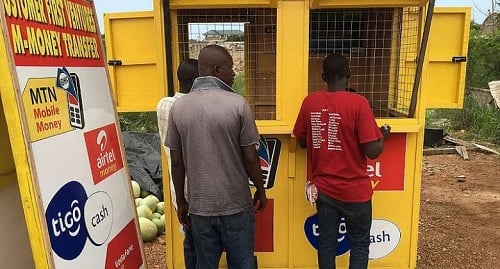Mobile money has become an indispensable component of Ghana’s financial system, demonstrating remarkable resilience and consistent growth. According to the Bank of Ghana’s Summary of Economic and Financial Data for August 2025, mobile money transactions reached a substantial GH¢354.1 billion, a slight decrease from the GH¢355.4 billion recorded in July. While the total transaction value experienced a marginal dip, the overall trend continues to reflect the platform’s dominance in the country’s payment landscape. The sheer volume of transactions, which surged to 831 million in August from 778 million in July, underscores the growing dependence on mobile money for various financial activities, including personal payments, business transactions, and remittances. This consistent increase in transaction volume indicates a deepening integration of mobile money into the daily lives of Ghanaians.
The expansion of financial inclusion is another key aspect of mobile money’s success story in Ghana. The number of registered mobile money accounts reached an impressive 77.7 million in August 2025, with active accounts rising to 25.1 million. This growth in active accounts signifies not just registration but actual usage, pointing to a growing comfort level and trust in the platform among a broader segment of the population. This expansion of access to financial services is particularly significant in a country where traditional banking infrastructure often falls short of reaching remote and underserved communities. Mobile money effectively bridges this gap, providing a convenient and accessible pathway to financial participation for millions.
Experts attribute the sustained growth in mobile money transactions and active users to several factors, including convenience, accessibility, and increasing public trust. The platform offers a readily available alternative to traditional banking, especially for those in rural areas with limited access to physical bank branches. Furthermore, the ease of use and the ability to conduct transactions anytime, anywhere, has contributed to its widespread adoption. Mobile money has become an essential tool for small businesses, enabling them to conduct transactions efficiently and manage their finances more effectively. It has also facilitated seamless household payments and cross-border remittances, connecting families and enabling the flow of funds across geographical boundaries.
The Bank of Ghana’s report also highlights the significant progress made in interoperability, which allows for seamless transactions between different mobile money networks. Interoperability transactions reached GH¢4.9 billion in August, facilitated by 26.4 million individual transfers. This signifies a growing interconnectedness within the mobile money ecosystem, enhancing the overall user experience and promoting greater flexibility in fund transfers. The ability to seamlessly move funds between different networks removes a significant barrier and further solidifies mobile money’s position as a central pillar of Ghana’s financial infrastructure.
Despite the challenges posed by currency volatility and ongoing fiscal pressures, the mobile money sector in Ghana exhibits continued resilience and dynamism. Industry analysts view the consistent growth trajectory of mobile money as a testament to its robustness and adaptability. It has not only become the backbone of the country’s financial sector but is also playing a pivotal role in driving the broader digital economy. By facilitating digital transactions and promoting financial inclusion, mobile money is empowering individuals, supporting small and medium-sized enterprises, and contributing to economic growth.
Looking ahead, the future of mobile money in Ghana appears promising. As technology continues to evolve and access to mobile devices expands, mobile money is poised for further growth and innovation. Its ability to adapt to changing market dynamics and integrate new features, such as micro-loans and insurance products, will further enhance its relevance and impact. The continued focus on improving interoperability and strengthening security measures will also be crucial in maintaining public trust and ensuring the sustainable growth of the sector. Ultimately, mobile money is not just a payment platform; it is a catalyst for financial inclusion, economic empowerment, and digital transformation in Ghana.














